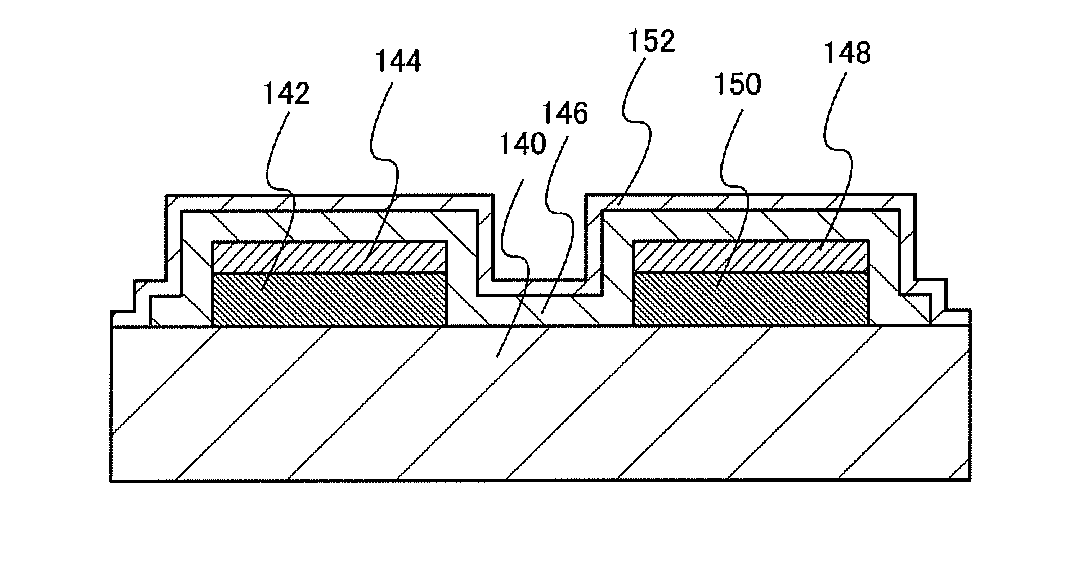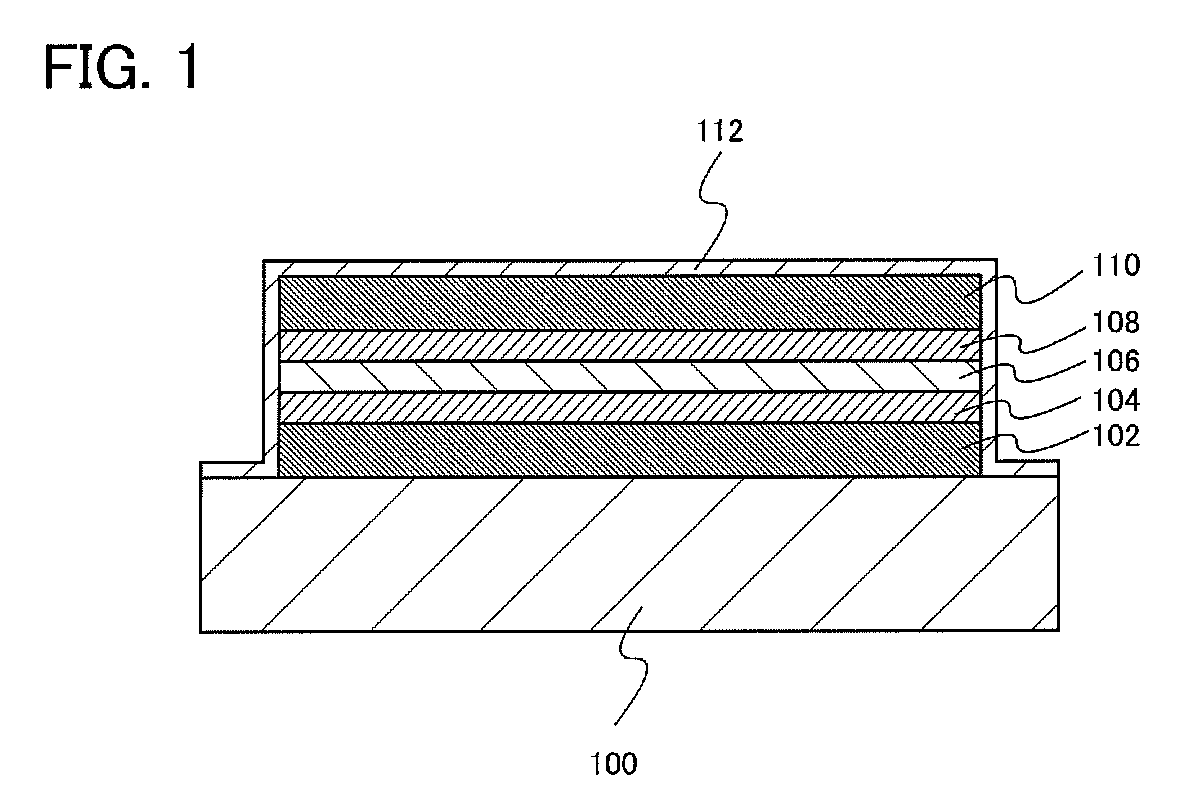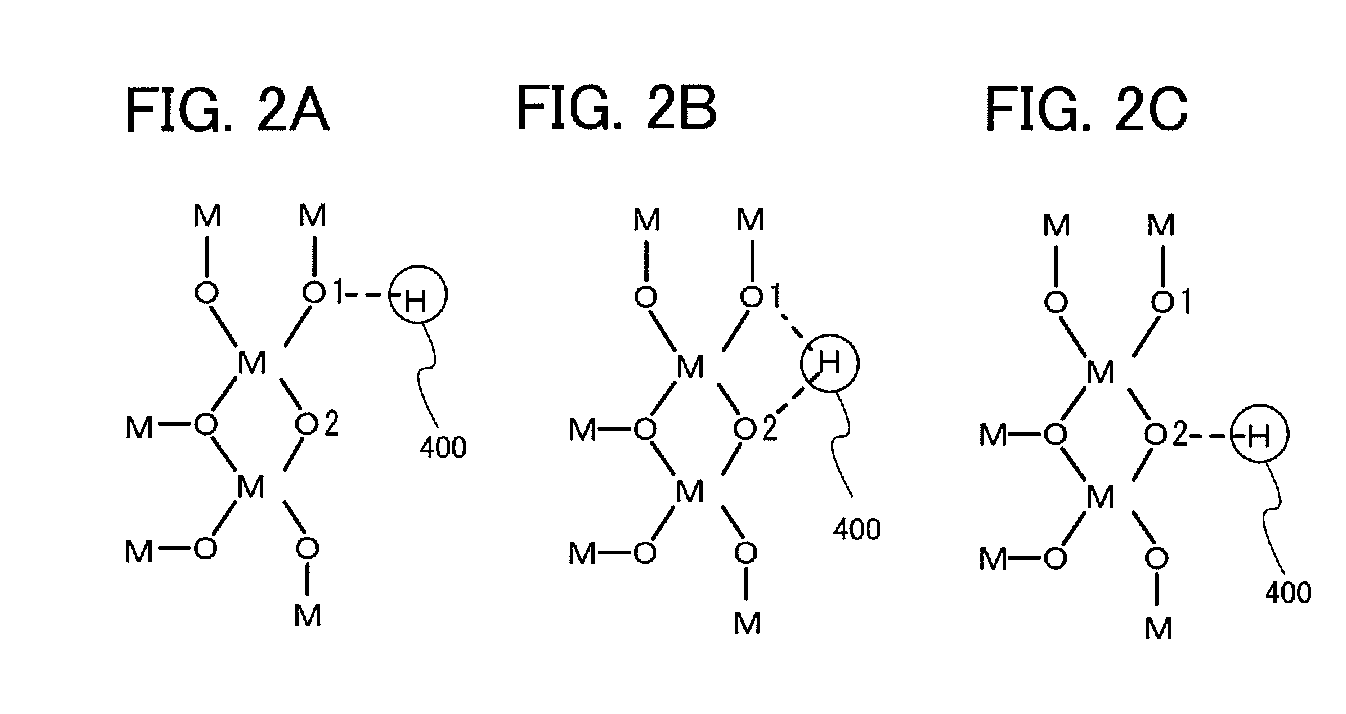Redox capacitor and manufacturing method thereof
- Summary
- Abstract
- Description
- Claims
- Application Information
AI Technical Summary
Benefits of technology
Problems solved by technology
Method used
Image
Examples
embodiment 1
[0021]In this embodiment, an embodiment of a redox capacitor structure will be described with reference to FIG. 1.
[0022]Over a substrate 100, a first current collector 102, a first active material 104 formed over the first current collector 102, an electrolyte 106 formed over the first active material 104, a second active material 108 formed over the electrolyte 106, and a second current collector 110 formed over the second active material 108 are included.
[0023]For the substrate 100, glass, quartz, ceramic such as alumina or plastic can be used. As the plastic, a fiberglass-reinforced plastics (FRP) plate, a polyvinyl fluoride (PVF) film, a polyester film, or an acrylic resin film can be used.
[0024]One of the first current collector 102 and the second current collector 110 functions as a positive electrode current collector, and the other functions as a negative electrode current collector. As the first current collector 102 and the second current collector 110, an element such as ...
embodiment 2
[0039]In this embodiment, a structure of a redox capacitor, which is different from the structure in Embodiment 1, will be described with reference to FIGS. 3A and 3B.
[0040]A redox capacitor illustrated in FIG. 3A includes an electrolyte 126 formed over a substrate 120, a first active material 124 and a second active material 128 which are formed over the electrolyte 126, a first current collector 122 formed over the first active material 124, and a second current collector 130 formed over the second active material 128.
[0041]The redox capacitor illustrated in FIG. 3B includes a first current collector 142 and a second current collector 150 which are formed over a substrate 140, a first active material 144 formed over the first current collector 142, a second active material 148 formed over the second current collector 150, and an electrolyte 146 which covers side surfaces of the first current collector 142 and the second current collector 150 and top surfaces and side surfaces of t...
embodiment 3
[0050]In this embodiment, redox capacitors capable of increasing the capacitance more than those of Embodiments 1 and 2 will be described with reference to FIGS. 5A to 5C. The redox capacitors described in this embodiment is characterized in that a first current collector or an electrolyte formed over a substrate has a projection and depression shape.
[0051]The redox capacitor illustrated in FIG. 5A includes a first current collector 162 having a projection and depression shape formed over a substrate 160, a first active material 164 formed over the first current collector 162, an electrolyte 166 formed over the first active material 164, a second active material 168 formed over the electrolyte 166, and a second current collector 170 formed over the second active material 168.
[0052]The redox capacitor illustrated in FIG. 5B includes an electrolyte 186 having a projection and depression shape formed over a substrate 180, a first active material 184 and a second active material 188 whi...
PUM
 Login to View More
Login to View More Abstract
Description
Claims
Application Information
 Login to View More
Login to View More - R&D
- Intellectual Property
- Life Sciences
- Materials
- Tech Scout
- Unparalleled Data Quality
- Higher Quality Content
- 60% Fewer Hallucinations
Browse by: Latest US Patents, China's latest patents, Technical Efficacy Thesaurus, Application Domain, Technology Topic, Popular Technical Reports.
© 2025 PatSnap. All rights reserved.Legal|Privacy policy|Modern Slavery Act Transparency Statement|Sitemap|About US| Contact US: help@patsnap.com



